News
“The criminal justice system in South Asia is discriminatory and violent”: Ambika Satkunanathan
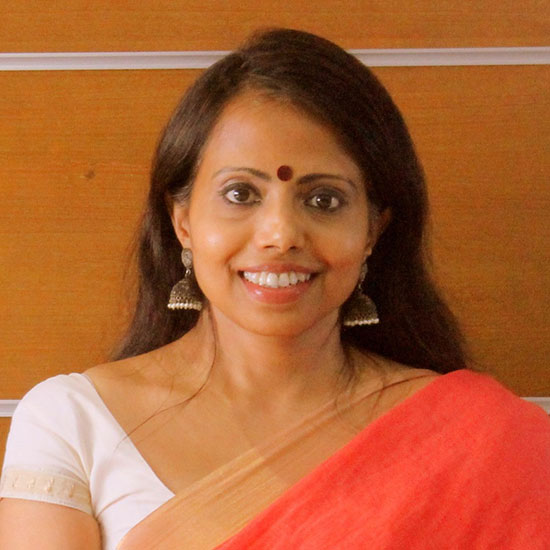
As a lawyer and human-rights champion who led the first-ever national study of prisons in Sri Lanka last year, Ambika Satkunanathan is vocal against the violence that is an endemic part of prison systems, and the ‘retributive’ and ‘vengeful’ nature of state justice that creates worse problems in society and creates criminals rather than rehabilitating them.
“Violence is used to maintain order, which robs the person in prison of dignity and agency from the moment they enter prison until they leave. Violence and discrimination are normalised in the system,” says Ambika, who was commissioner of the Human Rights Commission of Sri Lanka from 2015 to 2020.
“This penchant for violent forms of punishment is a result of societies being wedded to the punitive and carceral approach to dealing with what are essentially social problems,” she adds. “We believe that locking someone up and throwing away the key solves the issue, but it only compounds it.”
Regardless, she says, societies in the Subcontinent continue with this deeply flawed approach because it is easier than addressing the root causes of what is defined as ‘crime’.
The question of what constitutes crime has become increasingly blurred in the recent past in South Asia as more and more human-rights activists and even journalists in the region are being targeted by their own governments, and imprisoned on the basis of draconian colonial-era laws, and kept confined as ‘undertrials’ for years until the case begins. In these instances, prisons are being used not to deter crime but to deter dissent, and to threaten those who speak up against governments, even ‘democratic’ ones.
She shares her observation that South Asian societies are more skewed towards punishing individuals over corporations, and the underprivileged over the privileged. “A large multinational corporation will be able to use technicalities and the immense resources at their disposal to escape accountability for environmental degradation, while someone with a few grams of marijuana will be imprisoned. Therefore, your social position, power and privilege impact how you are treated by the criminal justice system, which is not neutral or objective but is discriminatory and violent,” asserts Ambika, who did her BA and LLB from Monash University in Australia, and LLM from the University of Nottingham.
Women even more vulnerable. “In Sri Lanka, women suffer structural violence in many ways. For instance, they don’t have access to even sanitary napkins, have no access to reproductive health care, and there is inadequate access to pre and postnatal care,” she says, describing a scenario that could apply to a number of rural areas anywhere in the Subcontinent.
Apart from facilities and infrastructure, women also bear the brunt of carrying the ‘honour’ of the family, or loss of reputation, which is more severe for them than for men. “When women are imprisoned, they often lose the support of families or partners / husbands and hence find it difficult to retain legal representation. It prolongs their imprisonment,” says Ambika, who has been a Chevening scholar and currently serves as the chairperson of the Neelan Tiruchelvam Trust, the only indigenous grant-maker in Sri Lanka, combining human-rights and peacebuilding initiatives.
Further, she says, women are more stigmatised and find it challenging to rebuild their lives following release from prison. This in turn pushes them into exploitative situations that leads to them being imprisoned again. “The vicious cycle continues,” she explains.
Women are also vulnerable to the gendered aspect of violence to which they might be subjected – another staple in South Asian societies. For women activists from minority communities in Sri Lanka, the challenges are progressively worse.
“If you are a Tamil woman activist working in the Northern Province, you will face additional challenges, such as surveillance, constant visits by the security agencies to your house to make inquiries about your activities, and phone calls prior to events or demonstrations to intimidate you from participating,” she shares.
Ambika’s own journey from a lawyer to a human-rights champion has been shaped by her identity as a Tamil woman in Sri Lanka – particularly the discrimination she faced. The violence and fear of violence that Tamils have experienced in Sri Lanka cast a shadow that hung over her life as long as she can remember.
“This is what drove me to study law and work to further the protection of human rights. The personal became the political because the political impacted every aspect of my personal life, like that of most Tamils in Sri Lanka,” she says.
She looks back with pride at her work at the Human Rights Commission of Sri Lanka where, despite structural and systemic impediments, she managed to strengthen connections between the Commission and civil society and survivors of human-rights violations. “It helped create an environment of trust whereby they felt they could approach the Commission for remedies,” she says.
At a webinar organised by South Asia Peace Action Network last month on the topic ‘Rights of the incarcerated in South Asia’, Ambika stressed on the importance of civil society organisations in South Asia coming together to share experiences, especially strategies, used to counter similar challenges.
“Other South Asian countries have seen authoritarian regimes similar to the current one in Sri Lanka, and are aware of or have experienced state efforts to stifle dissent and intimidate and harass human-rights activists. Similarly, patriarchy, misogyny, and sexism are not particularly unique to Sri Lanka. Since the problems are similar, so are the solutions. We must learn from each other rather than reinventing the wheel,” she says.
Ambika believes the solution lies with civil society who can help activists who are imprisoned or targeted by the powerful. “The most important way is to openly voice solidarity with the activists. Other means include mounting legal challenges to these state acts as well as engaging in advocacy, both nationally and internationally,” she says.
Providing support to the families of the activists, whether material or otherwise, is often understated, but goes a long way too, she adds. “Often the psychological aspect of incarceration is ignored. Therefore, offering moral support to the families is imperative,” she says, suggesting that supporters can visit imprisoned activists, taking them books or food to show they are not forgotten. “It reminds them that there are people who continue to fight for their release.”
While envisioning a unified and socially just South Asia, Ambika believes there’s a lot more that needs change than just laws. “Before we speak of laws, let’s speak of values. In South Asia, majoritarian and ethno-nationalist politics have taken hold and discrimination against minorities is common,” she says.
Giving examples of how religious minorities face constant threat – the Tamils and Muslims in Sri Lanka; Muslims and Dalits in India; and Sikhs, Shias and Christians in Pakistan – she believes South Asian countries are moving further away from secularism “if not in law, then certainly in deed.”
She has a special bone to pick with the death penalty. Citing both the legal and historical point of view, she refers to the South Asian cultural perspective that leans heavily towards the Hindu and Buddhist principles of the supremacy of all forms of life: “Abolish, abolish, abolish the death penalty! The death penalty is a cruel and inhumane punishment which, as research has shown over and over again, does not in any way prevent crime but instead causes great harm,” she asserts.
As a society, Ambika says, we need to introspect how much we all are responsible in perpetuating crime: “When we address the root causes of social problems, address the deep inequalities within society, we will not have to expend energy formulating humane punishments.” (Money Control)
News
New education reforms are not only to align education with job market demands but also to cultivate skilled youth who can contribute to the economy and provide leadership to society -Prime Minister
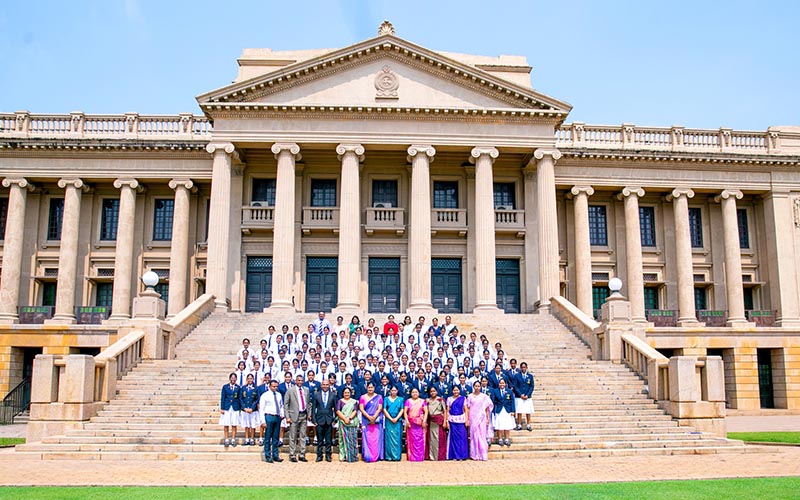
As part of the series of programmes conducted for schoolchildren by the Presidential Secretariat, the Ministry of Education and the Sri Lanka Parliament Department of Communication, a special Student Parliament session for Visakha Vidyalaya, Colombo, was held on Tuesday (25) at the Old Parliament Chamber of the Presidential Secretariat. The event was conducted under the patronage of Prime Minister Dr. Harini Amarasuriya.
During the session, the student parliament members of Visakha Vidyalaya had the opportunity to gain insights into the conceptual and practical significance of the “Clean Sri Lanka” initiative.
A special commemorative edition of the ‘Vision’ magazine, which focuses on the student Parliament initiative, was presented to the Prime Minister by Nadeeka Dangolla, Assistant Director of Parliamentary Affairs and Executive Functions.
Furthermore, the Principal of Visakha Vidyalaya, Mrs. Manomi Seneviratne, presented a special commemorative token to the Prime Minister.
Addressing the gathering, Prime Minister Dr. Harini Amarasuriya highlighted that the government’s commitment to implementing new educational reforms aimed at nurturing a generation capable of seizing economic opportunities.
The Prime Minister further stated that the government aims to prepare Sri Lankan children to acquire global knowledge while fostering a self-reliant and empowered future generation.
The Prime Minister stated that the objective of the new education reforms are not only to align education with job market demands but also to cultivate skilled youth who can contribute to the economy and provide leadership to society.
Furthermore, she underscored the government’s commitment to addressing resource disparities among schools and emphasized the significance of civic responsibility in this endeavour.
Speaker Dr. Jagath Wickramaratne:
‘Leadership must be devoid of selfishness. Selfless leaders guide both the nation and its people towards a better direction. To achieve this, skills must be enhanced. We can learn about talented leaders from both Sri Lankan history and global history. We should study as children how Chandashoka transformed into Dharmashoka and how Hitler’s regime brought devastation to the world. A nation achieves stability when leaders who prioritize minimal personal consumption and demonstrate a true dedication to their nation arise. Therefore, we must strive to cultivate leaders who can face challenges and prioritize national interests. By fostering selflessness, we can ensure a prosperous future for our people.’
Senior Presidential Media Advisor Mr. Chandana Sooriyabandara:
‘The students gathered here today are not just future leaders; they are leaders already. Leadership knows no age. Anyone who stands for a group could be consider as a leader. Those who exercise the power of the group are considered leaders. Throughout Sri Lankan history, individuals who contributed to the country through their words and actions have played leadership roles. Therefore, logical reasoning should lead the process of making decisions. Both leaders and citizens share the duty to act rationally. You all have a duty to shape a prosperous nation through logical thinking, and this obligation lies with every young person.’
The event was also attended by Deputy Speaker Dr. Rizvie Salih, Deputy Chairperson of Committees Hemali Weerasekara, Secretary-General of the Parliament Kushani Rohanadeera, Senior Additional Secretary to the President K.M.N. Kumarasinghe, Director-General of Legal Affairs to the President J.M. Wijebandara, Principal of Visakha Vidyalaya Manomi Seneviratne, along with members of the teaching staff and a group of students.
News
UK sanctions: MR urges govt. to stand by military

Former President Mahinda Rajapaksa has urged the NPP government to stand by Sri Lanka’s war-winning military. The following is the text of the statement issued by the former President: “The United Kingdom govt. has announced sanctions, including travel bans and asset freezes, against Sri Lanka’s former Chief of Defence Staff Shavendra Silva, former Navy Commander Wasantha Karannagoda and former Army Commander Jagath Jayasuriya over unproven allegations of human rights violations during the war with the LTTE. It was I, as the Executive President of Sri Lanka, who took the decision to militarily defeat the LTTE and the armed forces implemented that decision on the ground.
Despite the 2002 ceasefire agreement, the LTTE had carried out 363 killings during the ceasefire between February 2002 and the end of September 2005. LTTE attacks intensified in the first few weeks and months after I was elected President in November 2005. Among the most serious such incidents were claymore mine attacks on 4 and 6 December 2005 in Jaffna that killed 13 soldiers, a suicide attack on a naval craft on 5 January 2006 that killed 15 naval personnel, and the suicide attack on the Army Commander inside Army Headquarters in April 2006.
Despite all that, my government held two rounds of peace talks in January and June 2006, in Geneva and Oslo, which were unilaterally halted by the LTTE. The LTTE landmine attack on a civilian bus in Kebithogollawa in June 2006 which killed 64 and seriously injured 86, many of them children – was a pivotal moment for me and my govt. Military operations commenced in July 2006 when the LTTE closed the Mawilaru anicut, cutting off irrigation water to cultivators in the Trincomalee district, and did not stop until the LTTE was completely defeated on 19 May 2009.
I categorically reject the UK govt.’s allegation of widespread human rights violations during the military operations. Lord Naseby stated in the House of Lords on 12 October 2017 that the then UK Defence Attache in Colombo Lieutenant Colonel Anton Gash had in conversation with him, praised the discipline of the Sri Lanka Army and stated that there certainly was no policy to kill civilians. Because Lt. Col Anton Gash’s war time dispatches to London differ so significantly from the narrative promoted by the UK political authorities, only a heavily redacted version of those dispatches have been released. We conducted military operations only against the LTTE and not against the Tamil people.
Just months after the war ended, when my wartime Army commander came forward as the Opposition candidate at the 2010 presidential elections, the Tamil National Alliance issued a statement on 6 January 2010 appealing to the Tamil people to vote for the former Army commander and he won over 60% of the votes cast in the Northern and Eastern Provinces, thus directly contradicting the narrative being promoted by the UK govt. Imposing sanctions on Vinayagamoorthy Muralitharan, aka Karuna Amman, who broke away from the LTTE, in 2004, and later entered democratic politics, is a clear case of penalizing anti-LTTE Tamils so as to placate the dominant segment of the Tamil diaspora in the UK.
When the UK Foreign Secretary David Milliband came to Sri Lanka, in April 2009, and demanded a halt to military operations, I flatly turned him down. Later, a London-based newspaper The Telegraph revealed – quoting secret documents made public by Wikileaks – that Mr. Miliband had tried to intervene in Sri Lanka to win Tamil votes for the Labour Party. Regrettably, to this day, vote bank politics determines the UK’s stand on Sri Lanka’s war against the LTTE.
Three decades of LTTE terrorism claimed the lives of 27,965 armed forces and police personnel not to mention the lives of many thousands of civilians, including politicians. What Sri Lanka defeated in 2009 was the organization that the US Federal Bureau of Investigation had officially designated as the deadliest terrorist organization in the world. It is noteworthy that the United Kingdom introduced special legislation in 2021 and 2023 to protect their own armed forces from persecution by interested parties.
Hence I expect the present government to resolutely stand by and defend former armed forces personnel who face persecution by foreign governments and organisations for doing their duty to safeguard Sri Lanka’s national security.”
News
Jet crash: Deputy Defence Minister, too, contradicts Minister Ratnayake
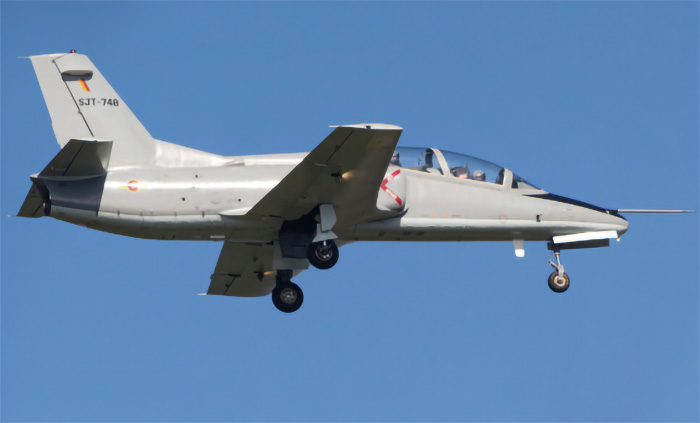
Deputy Defence Minister Maj. Gen. (Retd) Aruna Jayasekera, on Tuesday (25), said that Air Force investigation into the 21 March K-8 advanced jet crash had not been concluded.
Jayasekera was responding to a media query. The media sought the Maj. Gen’s comments in the wake of Transport Minister and Leader of the House Bimal Ratnayake’s declaration that the crash had been caused by pilot error.
The Air Force Headquarters has already contradicted Minister Ratnayake’s unsubstantiated claim. The qualified instructor and the trainee ejected before the ill-fated aircraft, attached to the Katunayake-based No 05 squadron, crashed at Wariyapola.
-
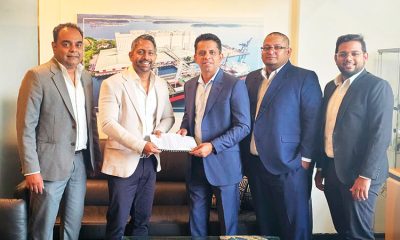
 Business7 days ago
Business7 days agoCargoserv Shipping partners Prima Ceylon & onboards Nestlé Lanka for landmark rail logistics initiative
-

 News5 days ago
News5 days agoSeniors welcome three percent increase in deposit rates
-
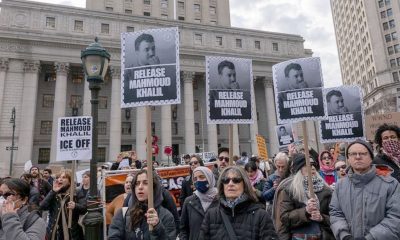
 Features5 days ago
Features5 days agoThe US, Israel, Palestine, and Mahmoud Khalil
-
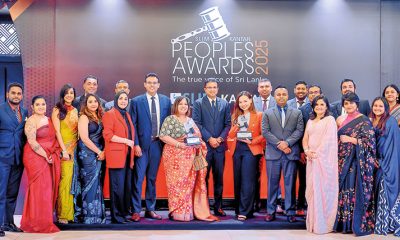
 Business7 days ago
Business7 days agoSri Lankans Vote Dialog as the Telecommunication Brand and Service Brand of the Year
-
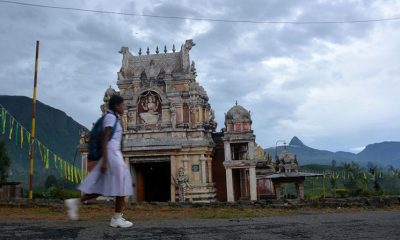
 News5 days ago
News5 days agoScholarships for children of estate workers now open
-
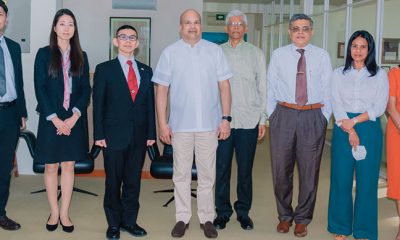
 News6 days ago
News6 days agoDefence Ministry of Japan Delegation visits Pathfinder Foundation
-

 Features7 days ago
Features7 days agoThe Vaping Veil: Unmasking the dangers of E-Cigarettes
-
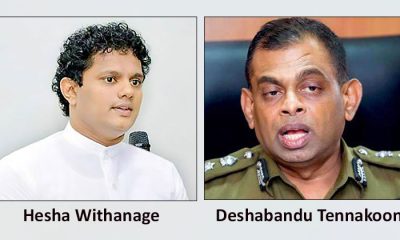
 News7 days ago
News7 days ago‘Deshabandu is on SLC payroll’; Hesha tables documents












